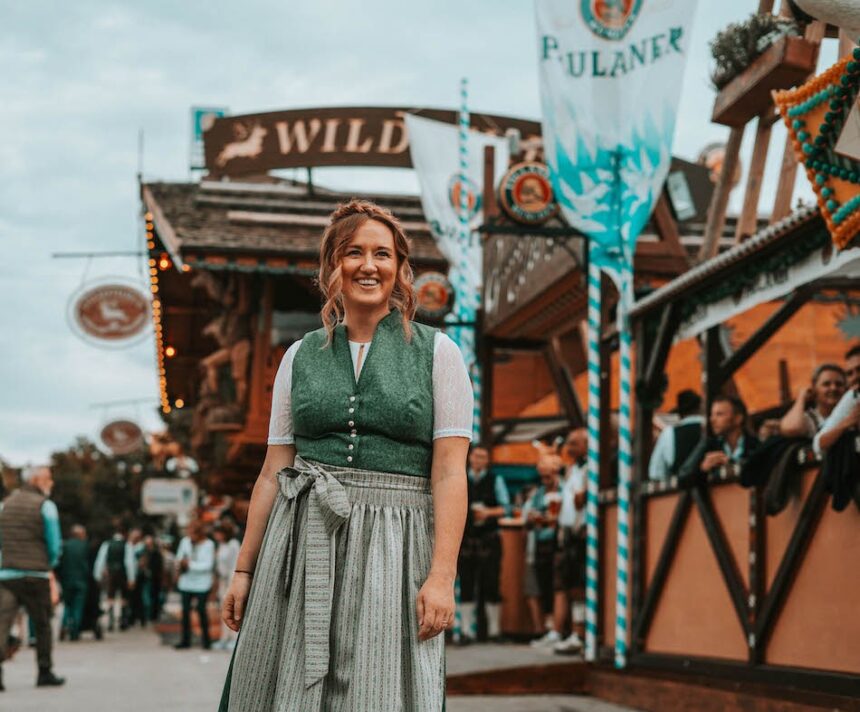Susanna Shankar is a content producer who is pursuing an MSc in Biodiversity, Wildlife, and Ecosystem Health to motivate others to act sustainably. She recently opened a business called Curiosity Saves, which offers accessible educational material on environmentally friendly transportation and the environment. Her goal is to bridge the gap between environmental research and the general public and empower people to make important choices that will preserve both the planet and travel as a whole.
Building a bridge between scientists and the general public is essential. For scientists, the dissemination of their research is a difficulty.
This is why I’m so excited to share with you this conversation with Susanna Shankar, a content producer who is pursuing an MSc to motivate others to act sustainably.
Susanna, who lives in Munich, Germany, pursues a Master of Science in Biodiversity, Wildlife, and Ecosystem Health while also working full-time as a freelancer. Susanna’s goal is to use her varied expertise (in the digital industry and presently obtaining an MSc) to make the science of conserving the earth understandable.
If you are, you should read this interview.
Travelers with a passion for regeneration or sustainability
If you work in academia or the sciences and want to share your findings with the public, you may also be curious about the fresh start that comes with moving abroad.
You recently opened a new company. Let’s start by talking about your profession and how you got started.
I did, indeed! Curiosity Saves is a business that I recently started. It comprises of two websites: Curiosity Saves Travel and Curiosity Saves the Planet. My goal for Curiosity Saves is to offer accessible educational material on environmentally friendly transportation and the environment that piques people’s curiosity in learning more.
By offering a diversity of viewpoints from throughout the world, I hope to bridge the gap between environmental research and the general public and empower people to make important choices that will preserve both the planet and travel as a whole.
I’ve gravitated toward sustainable and regenerative travel as a result of my time spent blogging about travel. I wanted to make sure that the information I generated was true, beneficial, doable, and motivating. I made the decision to go back to school and complete a Master of Science in Biodiversity, Wildlife, and Ecosystem health in order to achieve this.
I was initially concerned about being admitted after receiving a communication degree from the University of Alaska and applied to a scientific school. But after talking to the program director, she said, “Science needs good communicators now more than ever, and your abilities would be a huge asset.” I suddenly understood that I had a unique contribution to make.
“Science needs effective communicators more than ever, and your skills would be a tremendous asset,” she said after consulting with the program director.
I developed the courage to rename my travel blog and launch a new company as a consequence of my desire to teach my audience what I was discovering.
For academics and scientists, marketing is not necessarily a talent that comes naturally. What suggestions would you provide to a researcher or academic who wants to make their work more approachable?
Writing about science is popular right now. To get important information to the public, there is a push in academia to emphasize marketing and scientific communication. However, as you pointed out, academics don’t always come readily to marketing and communication. My strongest suggestions are:
Take a course in science communication. There are several courses that offer an introduction to explaining science to laypeople. The University of Edinburgh provides online certificate and master’s degree programs in scientific communication. Online courses are also offered via Udemy and Coursera. These are great ways to improve your communication skills.
Offer a news outlet your most current study and let them do the research. Articles regarding scientific breakthroughs and scientists are always of interest to major news organizations. Editors at The Guardian, The New York Times, Grist, or a local newspaper would be happy to speak with you about your findings and turn it into readable writing if you sent them an email. On my website, Curiosity Saves the Planet, I encourage contributions. I would be happy to help you successfully communicate the results of your research, fieldwork, NGO, or other projects.
Put all scientific concepts aside. Although it may appear a little severe, scientific journal writing guidelines regularly limit scientists. However, you must feel at ease utilizing bullet points, breaking down complex ideas, focusing on the broad picture, and stressing scientific agreement (rather than what is disputed and why) in order to effectively convey your findings.
What challenges do you encounter when managing a website or increasing your internet presence?
Imposter syndrome is there, especially now that I am establishing my credentials as an authority on sustainable travel and am moving into the field of scientific communication.
I’ve made an effort to remember that what I’m doing is important and that I have something unique to give.
I am constantly worried that people will critique or analyze my work. I’ve tried to remember that what I’m doing is important and that I have something unique to contribute. We can do eco-condemning in the environmental sphere, which entails humiliating individuals for their shortcomings as perfect environmentalists or zero-wasters. I would rather celebrate little successes and highlight positive affirmations than humiliate others. Every time you put yourself out there online, you run the danger of running with aggressive people who could disagree with you or think they are doing something better, in my opinion.
There are several ways to make money with blogs and websites like Curiosity Saves. If you wouldn’t mind revealing, how do you plan to make money off of Curiosity Saves?
Prioritizing ethics and ideals over profit is Curiosity Saves’ top priority. If I’m being fully honest, it may be really challenging to make money in this way. Thankfully, there are more and more organizations with strong ethical standards, boosting the availability of affiliate and collaboration options.
In the past, I used affiliate links for items with a high ethical value to monetize my travel blog. I want to keep making money from Curiosity Saves Travel by using affiliates and advertisements to market eco-friendly goods. I may also think of marketing branded tote bags and water flasks.
I’ve made the decision not to commercialize Curiosity Saves the Planet in the same way and may instead rely on contributions, Patreon, and ultimately, I aim to branch out into public speaking engagements, leading eco-friendly group outings, or developing significant alliances with more significant ethical businesses.
You promote safe and environmentally friendly travel. Why is a sustainable way of life and travel so important to you?
In Alaska, where I grew up, I saw glaciers physically melt in front of my eyes.
The majority of Alaskans were reared on hunting, fishing, and other forms of sustenance.
We are aware that we need to save our resources for renewal the next year. It was unsettling to see how quickly those resources were becoming scarce, and the effects of climate change brought environmental awareness and sustainability to the fore.
For a while, I worked in Alaska’s tourist sector. When cruise ships come in Alaska for four months out of the year, overtourism is rife. Even while these four months can be busy and even horrible for some tiny coastal villages, they are a major source of income for a lot of people.
My perception of the advantages and disadvantages of travel was so expanded.
If travel is done appropriately, it may be a profoundly changing experience, but it can also be harmful.
We can learn so much from seeing different cultures and taking in the natural world throughout the world, thus I think traveling should never end. However, it is up to travelers to make sure that travel is advantageous for both ourselves and our destinations.
How was the transition to Germany? How have you changed to the new situation?
I frequently quip that because of my German lineage, I was meant to live in Germany. Their work-life balance, as well as their culture and way of life, make perfect sense to me.
But it wasn’t perfect. The first month was jam-packed with amazing new encounters. As the weight of my relocation became clear, the following three months were some of the most challenging I’ve ever experienced.
“I was dubious of my capacity and abilities to start again because I had just quit my job, sold my car, and parted ways with all of my friends and family in the United States. I lamented losing my freedom in a way that was difficult for me to express.
I became aware that this was my chance to create something new as I started to study the ins and outs of life in Germany. I was able to design the way of life I had always wanted.
I worked in a high-paying position in the US with great perks. This required putting in at least 50 hours every week, working on holidays, and feeling bad about taking time off. I experienced confinement and misery.
I examined my alternatives as a freelancer when I made the decision to abandon that way of life and move to Germany. Even though there were a lot of paperwork and legal requirements to do, once I was able to work on my website as a legitimate business owner, my life significantly improved. I can now claim that I work in a nation that values having a healthy work-life balance, doing what I love.
What effects has living abroad during a pandemic had on you?
Despite the fact that I am speaking from a position of privilege, I have felt rather secure—possibly even more so than I would at home. I have access to first-rate medical treatment and a solid support system in Germany. Most people wear masks and follow the regulations. It has been a relief for me to settle down, explore Munich, and concentrate on my company and school after spending the previous year traveling nonstop.
Being away from home, though, is difficult. My family is in Alaska, whilst my husband’s family is in Australia. When we shall next be able to see them is unknown. Consequently, being apart from family at a trying period is connected with underlying stress and despair.
What are some of the things you’ve learned living abroad that you treasure the most?
“I love how educational it is to see how different cultures operate, and there is no right or wrong way to accomplish anything. In order to grow as a person and company owner, this approach has allowed me to take chances and try new things.
My best lesson, I think, is that there are whole countries with methods and cultures that are completely different from your own. Being from a small town, you frequently think there is just one proper way to accomplish things.
I love how humbling it is to see how other cultures operate since there isn’t just one right way to accomplish something. I’ve been able to grow as a person and company owner because to this approach, which has allowed me to take chances and try new things.
How can one begin if they are interested in sustainable living or ethical travel? What advice would you give them, why is it necessary, and why is it important?
“The ability to endure forever is what is meant by sustainability. At this point, it should be the norm for all travel.
If we can’t keep up with the local populace and environment, we shouldn’t ever go on vacation. The goal of travel should be to better ourselves and the places we visit, not to learn about the world for our personal gain.
I am aware, though, that it might be challenging to start or to know where to look. I’ll start off by advising you not to get caught up in all the jargon. It is fine to have questions, make a start, and pick things up as you go.
You are on the right track if you want to travel better than you did on your prior trip. One of the most powerful tools at your disposal is research. Read the company’s “about” page before making a reservation for any old tour or hotel:
Do they employ locals?
Do they give back to the neighborhood?
Do they have an environmental policy, are they accredited, and are they locally owned?
Trust your gut and look for companies who are making an effort to better their local areas and the environment.
How to Prevent Tourism Leakage’s Negative Effects (Curiosity Saves Travel)
What advice would you offer to someone thinking about relocating abroad?
I’ve always urged you to take the jump and make changes if a manageable part of your life is making you unhappy. So, I’ll start with this advice:
Follow your interests. If not, you will be forced to wonder “what if.”
However, I am aware that really packing up and going overseas is harder than simply making the decision to do so. So, my advise would be to start looking into what you’ll need to get going and move toward daily or weekly goals right now.
For instance, in Germany, you might need to complete a background check, save a specific amount of money, or have a degree that has been certified. If you are aware of what you require, you may start the procedure right away. These are things you would need to buy from your home state or nation.
If you are trying to migrate with the help of an international firm, apply for jobs in your own country before asking for a transfer. Or, find out what you’ll need if you wish to work remotely as a freelancer. To ask questions of expats, you may also join Facebook groups beforehand.
I prepared a binder full of supporting materials when I initially filed for a German visa in order to improve my chances of success. If you are moving closer to your goal, you will have more energy to move and less anxiety when you get there.
Contact Susanna Shankar now.
Susanna developed a deep love for an active outdoor lifestyle while growing up in a tiny hamlet in Alaska. She made her home in Munich, Germany, where she currently works full-time as a freelance content developer.
When she’s not taking part in mindful travel, going on outdoor adventures, or working on an MSc in ecology, she likes to snuggle up on the couch with her husband and cat, playing video games, and hitting level 99 in life.
For further information
One of her social media account is Twitter, and you can also check Curiosity Saves.
We gather unique business case studies from all over the internet, to inspire you with a wide range of business ideas. This case study was supervised by our team and it definitely caught our interest. You can find other inspiring business stories here.







